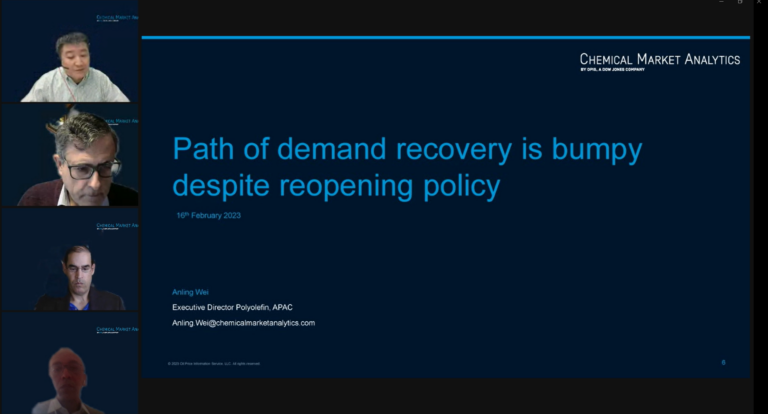In the ever-evolving landscape of the plastics industry, procurement directors and managers play a pivotal role in navigating the challenges and opportunities that arise.
As we move forward into 2024, it’s essential to identify the challenges and concerns that are shaping the future of plastics industry.
Here are the crucial factors to consider:

Sustainable Sourcing:
As per EU regulation 55% of packaging waste must be recycled by 2030, how can the industry reach the target? What are the bottlenecks and risk factors? Some countries within Europe have started introducing plastic tax non-recycled packaging how will this impact input cost?
Supply Chain Resilience:
Supply chain bottlenecks reached its peak in 2022 when freight from Asia to Europe reached nine times pre-pandemic level. In 2023 freight rates dropped below pre-pandemic level due to demand adjustment and supply improvement. But situation stays fragile, can the industry adjust to a sudden jump in demand given that inventory down the value chain has depleted much below normal?


Circular Economy Initiatives:
Embracing the circular economy model can reduce waste and boost efficiency. Procurement directors should consider partnerships with companies committed to recycling and reusing plastics to create a more sustainable and cost-effective production cycle
Raw Material Price Volatility:
Fluctuating raw material prices are causing heightened uncertainty and keeping sourcing managers on the edge. Is volatility, uncertainty new normal? What are the driving factors? What tools can be deployed to limit risks arising out of volatility, how some of the companies are getting better at managing uncertainty

Understanding the implications these market dynamics have on your procurement strategy will be crucial in helping you prepare for and elevate your strategic approach for 2024 and beyond.
Consult our experts

On-demand Webinar – Global Polyolefins Markets 2023 Review
Macroeconomic, geopolitical, security conditions globally remain volatile, exacerbated by pandemic, war, and inflation and supply chain distortions. The forward view is increasingly clouded by shifts towards energy security ahead of energy transition, changes in consumer behavior, monetary tightening after a decade of loose policy, and globalization vs localization strategy changes.
What are the implications of these evolving factors on the polyolefin industry? Is the period of prosperity over for global producers? Will there be a sign of recovery?
Watch the on-demand webinar
Who We Are
Chemical Market Analytics by OPIS is the former base chemicals business of IHS Markit which was acquired by Dow Jones on June 1, 2022. Our renowned team of trusted subject-matter experts provides stakeholders in the global chemical industry with next-generation analytics, deep insights, future outlooks, and price discovery to improve operational efficiency.
We offer short- and long-term market coverage for more than 200 core building-block chemicals via Market Advisory Service, Chemical Advisory Service, World Analysis Service, Circular Plastics Service, and a series of educational and networking conferences around the globe such as World Chemical Forum.
Request plastics market insights
Plastics & Polymers Global Team
Joel Morales
Vice President, Polyolefins Americas Chemical Market Analytics by OPIS
Read BioAnthony Palmer
Vice President, Global Circular Plastic Sustainability Chemical Market Analytics by OPIS
Read BioUtpal Sheth
Vice President, APAC Plastics & Polymers Chemical Market Analytics by OPIS
Read BioNick Vafiadis
Vice President, Global Plastics & Polymers Team Lead Chemical Market Analytics by OPIS
Read BioRobin Waters
Executive Director, Circular Plastics & Chemicals Sustainability Chemical Market Analytics by OPIS
Read BioAlan Wei
Executive Director, China Polyolefins Chemical Market Analytics by OPIS
Read BioMartin Wiesweg
Executive Director, EMEA Polymers Chemical Market Analytics by OPIS
Read Bio







